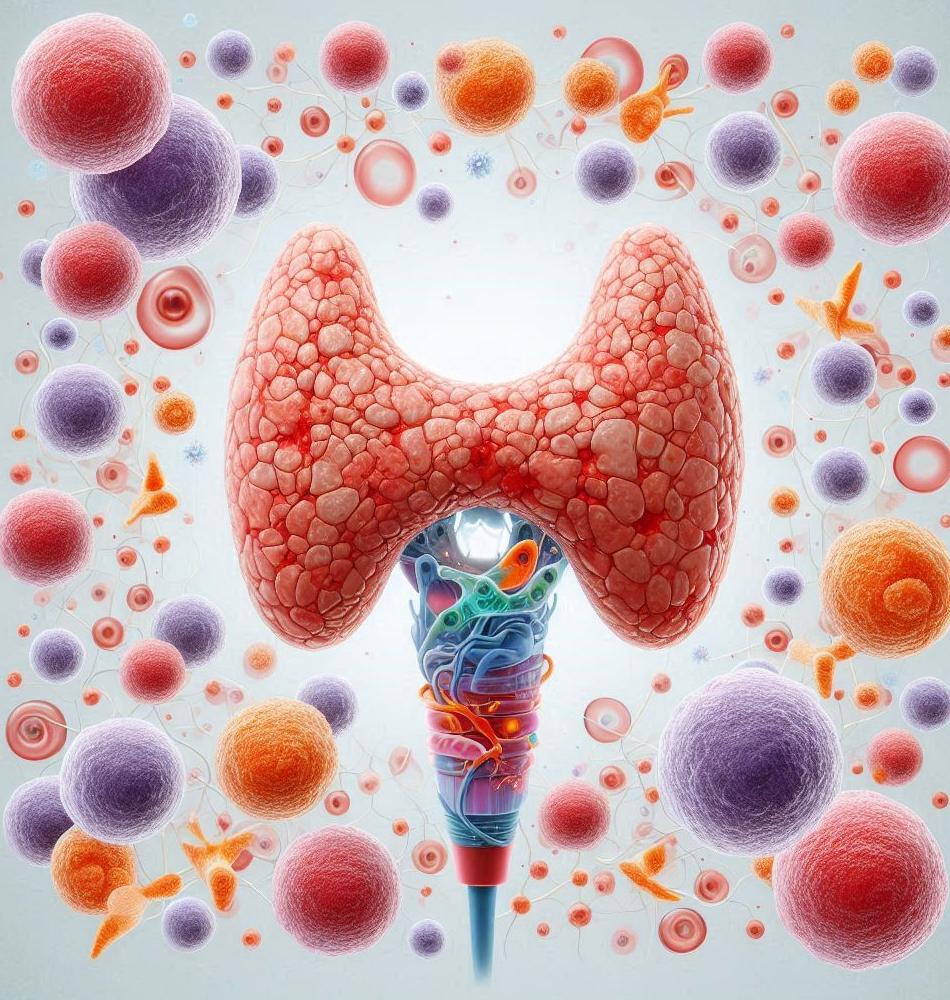Hashimoto's and Your Immune System: Unraveling the Mystery 🔍
Hashimoto's thyroiditis is an autoimmune disorder that affects millions of people worldwide. If you are among those grappling with the nuances of this condition, you might have asked yourself the question: Does Hashimoto's weaken your immune system? As a reader, you deserve a comprehensive exploration of how Hashimoto's influences immune response, its symptoms, and effective management strategies. Buckle up as we dive into the world of Hashimoto's, filled with exciting discoveries that could change your understanding of this condition.
Understanding Hashimoto's Thyroiditis 🧠
Hashimoto's thyroiditis, named after Japanese physician Hakaru Hashimoto who first described it, is a condition where the immune system mistakenly attacks the thyroid gland. The thyroid is a butterfly-shaped gland located in the neck that produces hormones that regulate metabolism, energy levels, and overall body function.
Symptoms of Hashimoto's Thyroiditis 🌡️
Understanding the symptoms of Hashimoto's is essential for early diagnosis and effective management. Some common symptoms include:
- Fatigue
- Weight gain
- Cold intolerance
- Dry skin
- Hair loss
- Constipation
- Depression
- Muscle weakness
While these symptoms may vary from person to person, they form the crux of what constitutes this disorder. But is there a link between these symptoms and the immune system's performance? Let’s analyze further.
The Connection Between Hashimoto's and the Immune System 🔗
The primary question at hand is whether or not Hashimoto's disease weakens your immune system. Interestingly, the answer isn't straightforward. While Hashimoto's is an autoimmune condition, it operates in a complex relationship with overall immune function.
Does Hashimoto's Weaken the Immune System? 🤔
Autoimmune conditions, including Hashimoto's, can both stimulate and impair the immune system:
1. Immune System Misfire ⚠️
In the case of Hashimoto's, the immune system misidentifies components of the thyroid as foreign bodies, leading to an attack that could potentially exhaust immune resources.
2. Autoimmunity and Inflammation 🔥
This constant autoimmunity may trigger inflammation, impacting the body’s ability to effectively respond to pathogens and diseases. A chronically activated immune system can focus its energy inappropriately.
3. Underlying Nutritional Deficiencies 🍽️
Individuals with Hashimoto's may experience nutrient deficiencies, which are vital for maintaining a robust immune response. For instance, deficiencies in selenium and zinc can compromise immune function.
Effects on Overall Health and Immunity 💪
Hashimoto's disease not only causes thyroid-related symptoms but can also create a cascading effect on other areas of health and immunity. Let's explore how.
1. Hormonal Imbalance 🔄
The thyroid hormones produced by the thyroid play a pivotal role in regulating metabolic processes. An imbalance due to Hashimoto's may lead to fatigue, anxiety, and even depression. These symptoms indirectly affect one's overall immune health.
2. Stress and the Immune Response 🌊
Living with a chronic illness such as Hashimoto's can place significant emotional and physical stress on individuals. Stress hormones, such as cortisol, can dampen immune response, leading to further complications.
3. Gut Health and Immunity 🦠
Emerging research highlights the connection between gut health and the immune response. Hashimoto's and other autoimmune diseases often co-occur with gastrointestinal issues. A compromised gut can lead to an impaired immune system.
Managing Hashimoto's Effectively 🛠️
If you are facing the prospects of Hashimoto's, management and lifestyle adaptations can play a crucial role in mitigating its impacts on immunity. Here are some strategies:
1. Regular Monitoring and Medication 💊
Regular visits to your healthcare provider for thyroid function tests can help manage symptoms effectively. Medication, such as levothyroxine, is often prescribed to normalize hormone levels.
2. Nutritional Considerations 🍏
Focus on a well-balanced diet rich in:
- Selenium-rich foods like Brazil nuts
- Zinc-rich foods such as shellfish
- Vitamin D sources like fatty fish and egg yolks
3. Stress Management Techniques 🌼
Adopting stress management practices such as yoga, meditation, or even regular exercise can bolster your immune response and improve overall health.
4. Gut Health Guidelines 🥦
Incorporate probiotic-rich foods into your diet to help support gut health. Foods like yogurt, kefir, sauerkraut, and kimchi may be beneficial.
Frequently Asked Questions 💬
- Can Hashimoto's lead to other autoimmune diseases?
- How can I tell if my immune system is weakened because of Hashimoto's?
- What tests can diagnose Hashimoto's disease?
- How long does it take to achieve balance after beginning treatment?
- Can lifestyle changes really improve my immune system while living with Hashimoto's?
Living with Hashimoto's: Hope and Resilience 🌈
Understanding Hashimoto's disease is a dynamic journey. Remember that while Hashimoto's can influence immune function and lead to various complications, proactive measures, informed choices, and ongoing medical support can empower you to thrive. Embrace your journey toward well-being by focusing on health preservation and lifestyle improvements.
Final Thoughts 🙏
Hashimoto's poses challenges, but it does not mean one must accept a weakened immune system as a fact of life. Through careful management, nutritional support, and stress reduction, it’s possible to navigate life with Hashimoto's effectively. After all, understanding is the first step toward control and empowerment in dealing with this complex condition. Together, let's continue to explore and advocate for awareness and treatment of autoimmune disorders like Hashimoto's.
.png)





